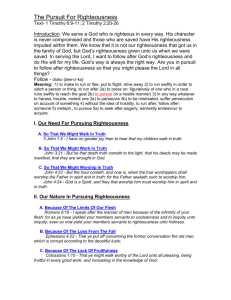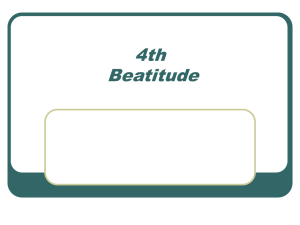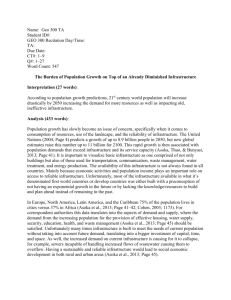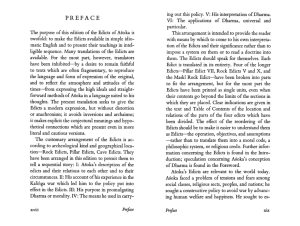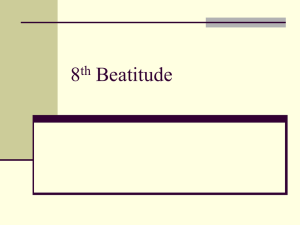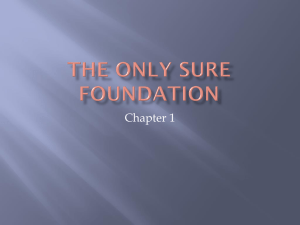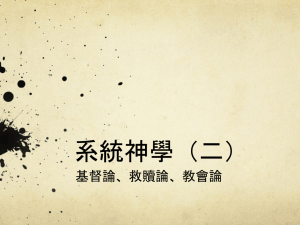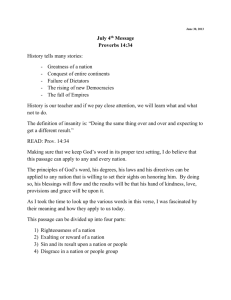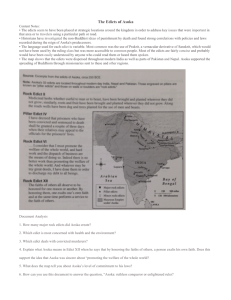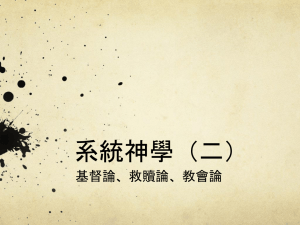AsokasEdictsPrimaryDocumentWorksheet
advertisement
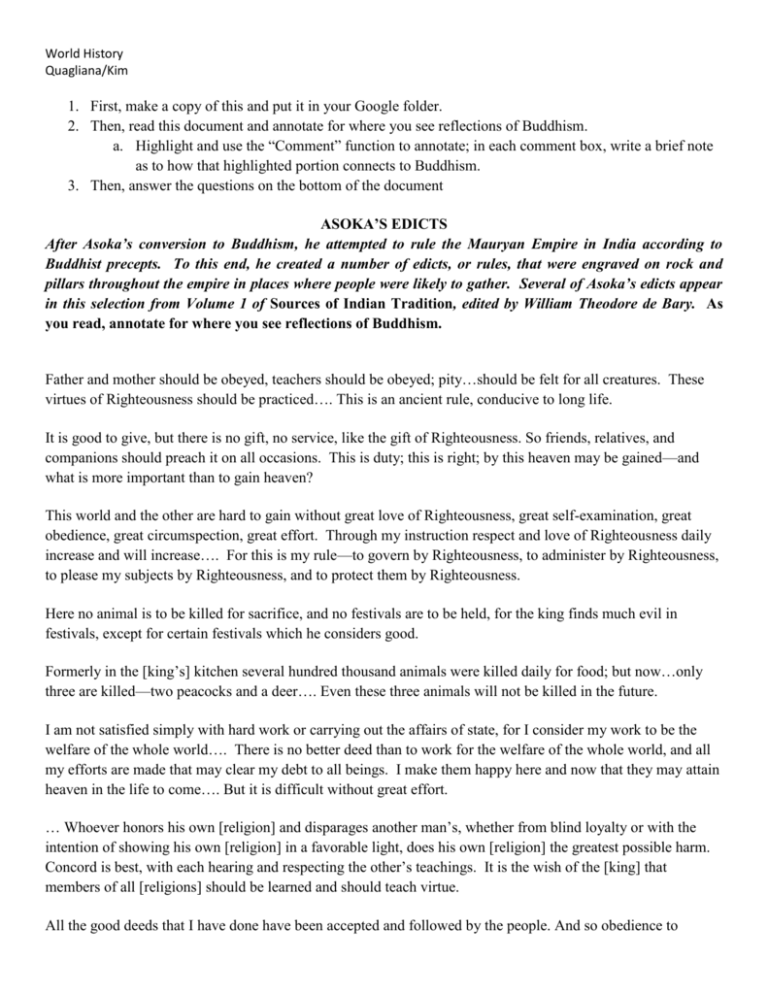
World History Quagliana/Kim 1. First, make a copy of this and put it in your Google folder. 2. Then, read this document and annotate for where you see reflections of Buddhism. a. Highlight and use the “Comment” function to annotate; in each comment box, write a brief note as to how that highlighted portion connects to Buddhism. 3. Then, answer the questions on the bottom of the document ASOKA’S EDICTS After Asoka’s conversion to Buddhism, he attempted to rule the Mauryan Empire in India according to Buddhist precepts. To this end, he created a number of edicts, or rules, that were engraved on rock and pillars throughout the empire in places where people were likely to gather. Several of Asoka’s edicts appear in this selection from Volume 1 of Sources of Indian Tradition, edited by William Theodore de Bary. As you read, annotate for where you see reflections of Buddhism. Father and mother should be obeyed, teachers should be obeyed; pity…should be felt for all creatures. These virtues of Righteousness should be practiced…. This is an ancient rule, conducive to long life. It is good to give, but there is no gift, no service, like the gift of Righteousness. So friends, relatives, and companions should preach it on all occasions. This is duty; this is right; by this heaven may be gained—and what is more important than to gain heaven? This world and the other are hard to gain without great love of Righteousness, great self-examination, great obedience, great circumspection, great effort. Through my instruction respect and love of Righteousness daily increase and will increase…. For this is my rule—to govern by Righteousness, to administer by Righteousness, to please my subjects by Righteousness, and to protect them by Righteousness. Here no animal is to be killed for sacrifice, and no festivals are to be held, for the king finds much evil in festivals, except for certain festivals which he considers good. Formerly in the [king’s] kitchen several hundred thousand animals were killed daily for food; but now…only three are killed—two peacocks and a deer…. Even these three animals will not be killed in the future. I am not satisfied simply with hard work or carrying out the affairs of state, for I consider my work to be the welfare of the whole world…. There is no better deed than to work for the welfare of the whole world, and all my efforts are made that may clear my debt to all beings. I make them happy here and now that they may attain heaven in the life to come…. But it is difficult without great effort. … Whoever honors his own [religion] and disparages another man’s, whether from blind loyalty or with the intention of showing his own [religion] in a favorable light, does his own [religion] the greatest possible harm. Concord is best, with each hearing and respecting the other’s teachings. It is the wish of the [king] that members of all [religions] should be learned and should teach virtue. All the good deeds that I have done have been accepted and followed by the people. And so obedience to World History Quagliana/Kim mother and father, obedience to teachers, respect for the aged, kindliness…to the poor and weak, and to slaves and servants, have increased and will continue to increase. …And this progress of Righteousness…has taken place in two manners, by enforcing conformity to Righteousness, and by exhortation. I have enforced the law against killing certain animals and many others, but the greatest progress is Righteousness…comes from exhortation in favor of noninjury to life and abstention from killing living beings. I have done this that it may endure…as long as the moon and sun, and that my sons and my great-grandsons may support it; for my supporting it they will gain both this world and the next. Questions 1. What seems to be the most important value that Asoka is encouraging through these laws? Use at least one quote in your response. 2. To what extent is Asoka encouraging Buddhism within his subjects? Use a quote in your response 3. Based on your textbook reading, how successful of a ruler was Asoka? What role might his laws (edicts) have played in his effectiveness (or lack thereof) as a ruler?
